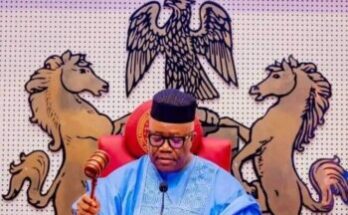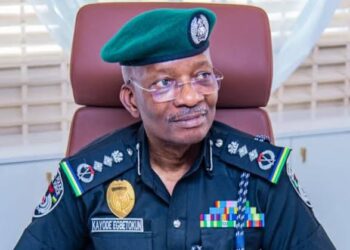It is 30 years since the last military coup in Nigeria which aborted the then nascent Third Republic being midwifed by military President General Ibrahim Babangida, to the chagrin of all lovers of freedom and democracy in Nigeria and, indeed, the world over.
The Third Republic House of Representatives Forum, a registered group of members who were duly elected into the then House of Representatives, is therefore organising a 30th year anniversary to commemorate that unfortunate rape on democracy to remind Nigerians of that ugly development and to discourage any future forceful change of government in Nigeria, at a time coups are once again becoming fashionable on the continent of Africa.
However, much as the citizens of those countries in which there have been recent coups are clearly and demonstrably in support of such moves, no sane and patriotic individual who has had the experience of living under military dictatorship will support a coup in Nigeria 63 years after independence, more so, when the experience of military rule is still very fresh in our memories. Independence here, should be experienced not just in name but also in practice.
Nevertheless, it is generally believed that military takeovers are a direct response to bad governance from the part of the political class, but experience has shown that the military are no better. As a matter of fact, they are not trained to serve effectively in civilian domains, which is why even in peace keeping missions, gross violations of human rights are labelled against them. It is, therefore, my humble opinion that our gallant and patriotic soldiers can best serve this country in their traditional roles of defending lives and the territorial integrity of the land, while the administration of government is best handled by civilians.
As we plan to commemorate that day, we stand to condemn military putsch in its entirety, just as we stand tall to demand justice, accountability, fairness and transparency in governance from our civilian leadership. Our commemoration of the day reminds us and in deed other Nigerians of the great potential of that government, which was truncated: A government which held a lot of promise for our dear country and her citizens, a government which promised to uplift the dignity of Nigerians and in deed the black race and a Nigeria which was poised to take her rightful place in the comity of nations, under the able leadership of late Bashorun, MKO Abiola. For instance, the election that was about to complete the final phase of the infamous Transition Program is often described as the freest and fairest in the history of elections in Nigeria and therefore adjudged to be the best.
As usual, in the event of a military takeover, it is the legislative arm of government that is worst affected because it is completely obliterated from the scheme of governance. Yet, our National Assembly and members turned down suggestions from several eminent Nigerians to cooperate with the military to jettison the cause of June 12, and form a government of national unity that would be led by the military, but with the legislature in place, as a panacea towards breaking the then impasse in government.
We stood our ground and insisted and demanded that the election process must be completed and the winner duly declared. This is notwithstanding the fact that our National Assembly had hardly had time to settle down nor indeed did we have time to know one another fairly well, yet in the spirit of unity of purpose, we chose to be victims rather than collaborate with the military and betray the trust of our people.
As members of the Third Republic, we are the harbinger of the freedom we enjoy today, because we laid the foundation for today’s democracy as the first set of a new class of politicians to come on board after nearly twenty years of military rule. We were courageous enough to come forward and offer ourselves to service, many of us resigning from our official engagements, at a time of uncertainty and fear. This is what 17th November, 1993 reminds us of and what we want Nigerians and especially the youths to know. The elections we now hold every four years as a routine, did not come to us as it is today. Elections were subjected to the whims and caprices of the military rulers who fixed dates, shifted them and cancelled elections at will.
It is in recognition of this sacrifice that our would-be President-elect, Chief MKO Abiola, who paid the supreme price, was presented with a post-mortem award of the highest honour of the land, The GCFR, and The GCON on his Vice President, Alhaji Babagana Kingibe. Looking back at the risks taken and the sacrifices made and the desire to keep a date with history, the members of the Third Republic House of Representatives have continued to remain united and push for recognition from government in a way akin to that extended to the Executive arm of government, even if it is just an acknowledgement of our contributions to the development of democracy in Nigeria, an apology or some kind of reward or honour as government may deem fit.
As we commemorate our 30th anniversary, and at a time a new government is in place, we see a flicker of light in the tunnel of our long struggle. The current President of the Federal Republic of Nigeria, His Excellency, Senator Bola Ahmed Tinubu is himself a member of the National Assembly of the Third Republic and a forefront member in the agitation and subsequent recognition of June 12th as Democracy Day in Nigeria and the conferment of National Honours on the President and his Vice president.
The plucking of the fruit of our agitation for the recognition of our role in the development of democracy in this country is therefore, either now or never. This is further reinforced by the strategic placement of the present Secretary to the Government of the Federation, his Excellency, Senator George Akume, a friend of the Third Republic, having found himself among the political class of that period as a Director of Protocols in the Benue State Government House.
We all had common hopes and aspirations in our desire to give our dear country the best we could offer as young men and women. Therefore, when we talk about recognition, these people understand where we are coming from. In addition, this is also the first time, we have former legislators acting in numerous capacities in government. For instance, the President, the Vice President, the SGF, the Chief of Staff to the President, as well as many ministers and governors. I am therefore, happy to proudly assert ‘Awa lokan’-remember “emi lokan”?
Let me seize this opportunity to educate Nigerians, perhaps for the very first time, especially the youths, the genesis of the perceived ‘gerontocracy’ in this country by the youths, while seeking inclusion in governance. We, the political class of that period were all young and vibrant, just like leaders of previous Republics, with clear visions to enthusiastically serve our country and contribute to the development of our people in various capacities but our dreams were cut short.
However, visions do not die and people who have had such visions could not retire until and unless their missions are done. No wonder then, President Bola Ahmed Tinubu, thirty years on, still has the burning desire to realise his vision. May God Almighty give him the strength to fulfil his vision and mission.
This anniversary similarly reminds us of the transient nature of life. While we did not lose any of our colleagues during our short stay, we have so far lost 243 of our members, the latest, Hon. Hajara Kusherki, my bosom, sisterly friend who died less than a month ago. May their souls Rest In Peace.
On a final note, let me present a short story to drive home the theme of this write-up. As was usual in those days, soldiers were drafted to enforce order in a filling station in Maiduguri during a time of acute shortage of petroleum products in the military era and a soldier broke a man’s arm while giving the man the beating of his life and that was it. NO apologies, no picking of bills nor indeed a prosecution. That was how bad it was.
We therefore say a capital NO to military coups, as it has generally been agreed that the best military government is not as good as the worst democratic government.
Hon. Rabi Allamin writes from Maiduguri, Borno state.




